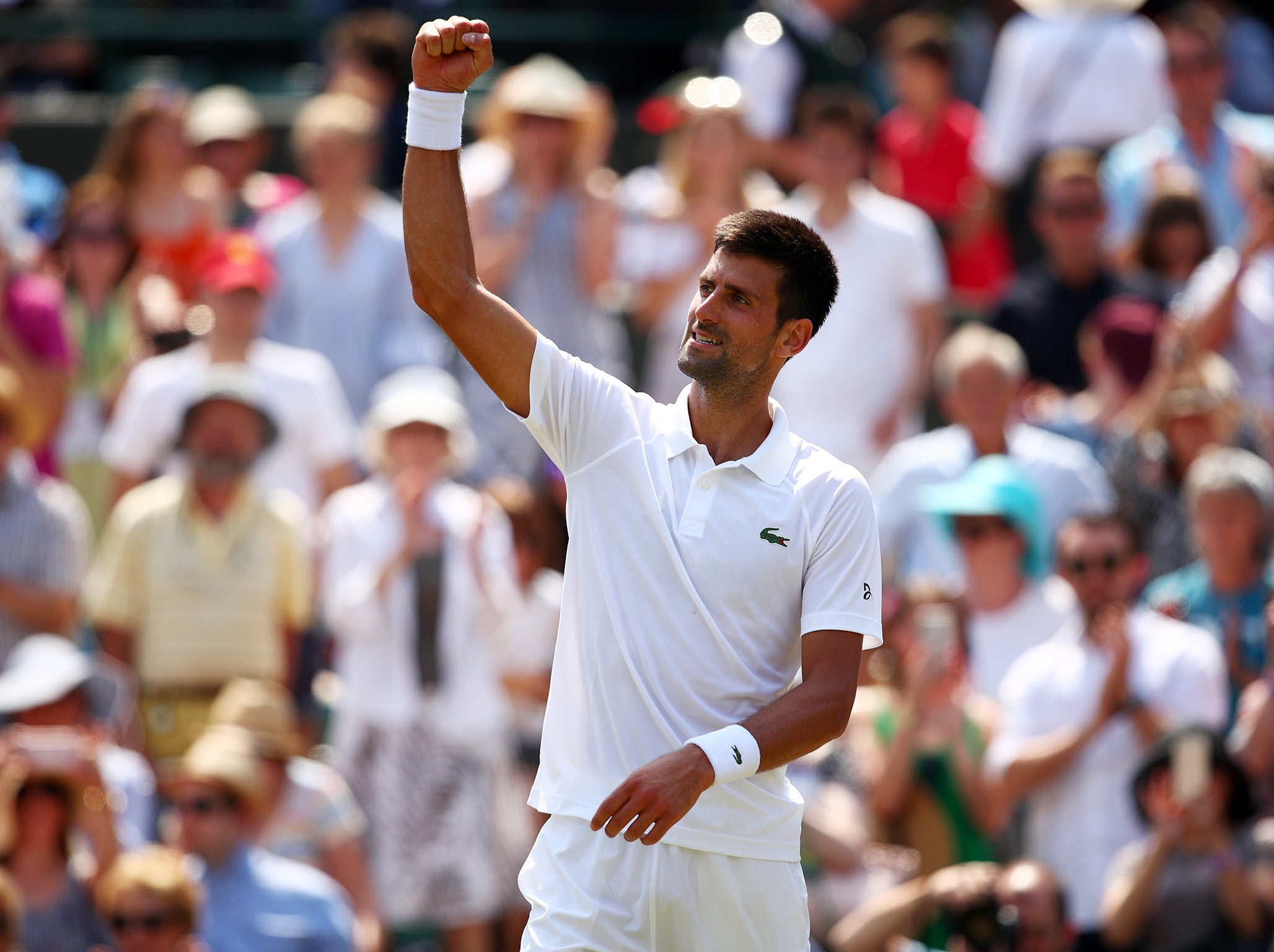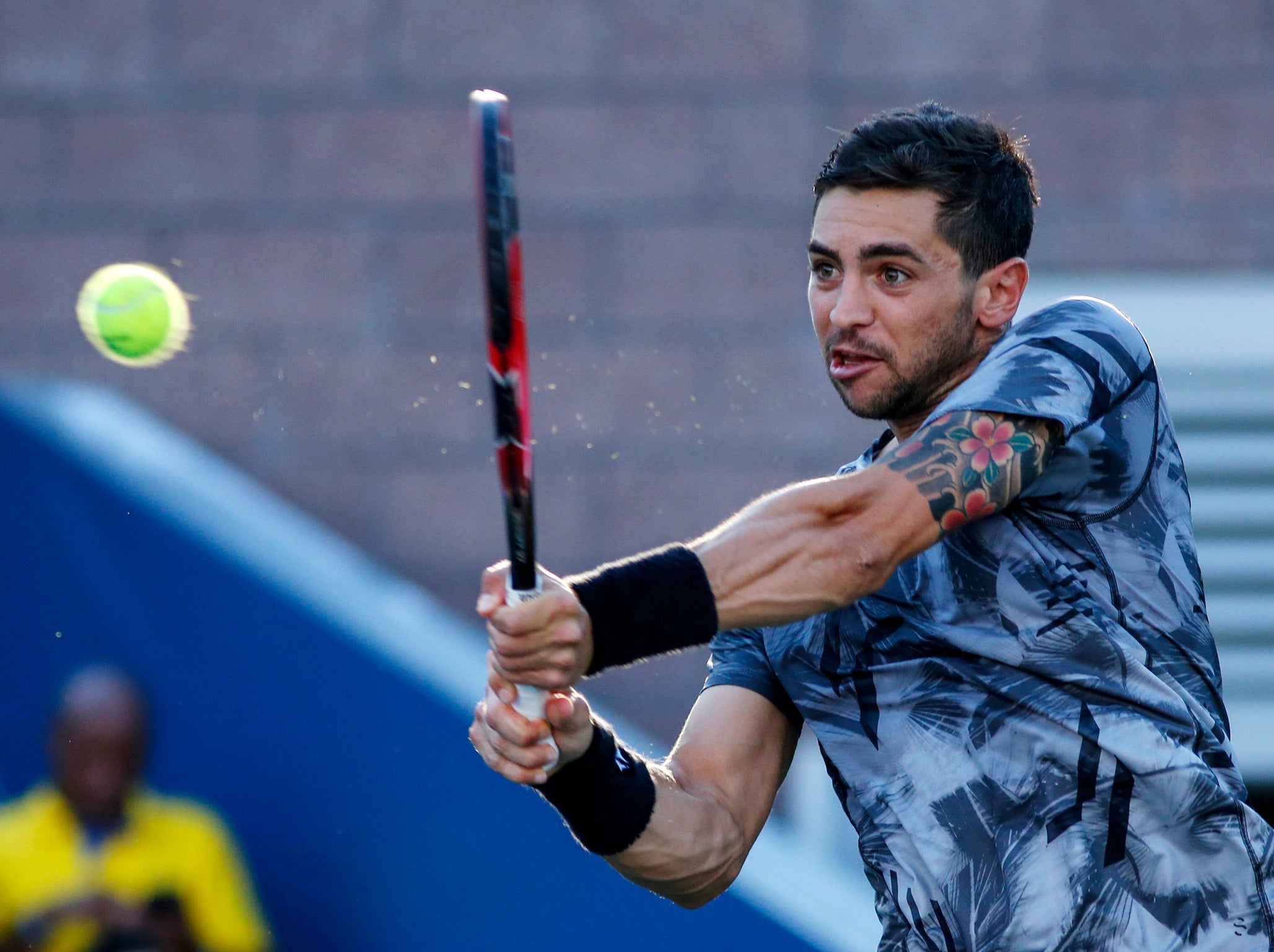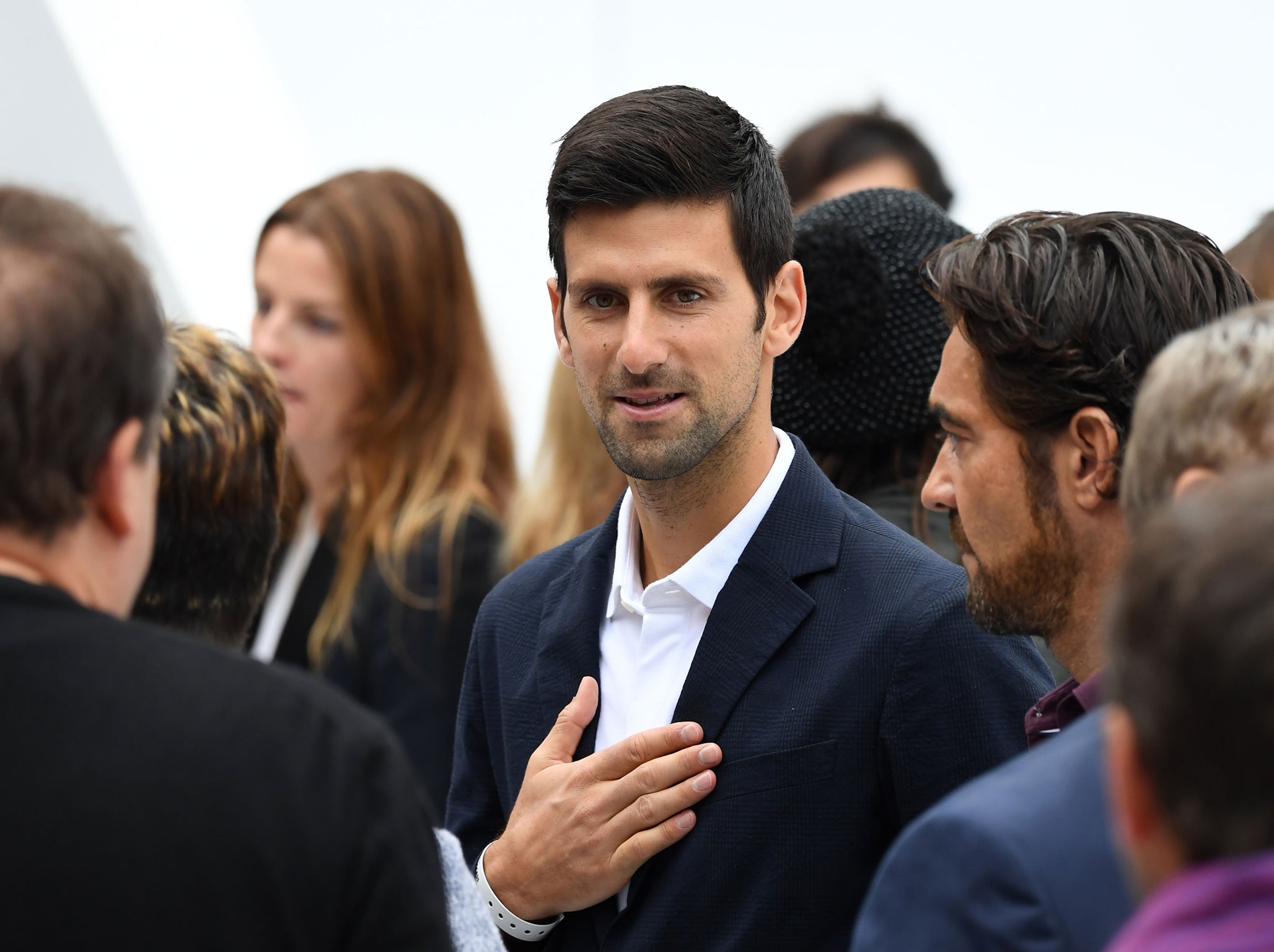Novak Djokovic emerges as tennis’ unlikely champion of the downtrodden - but is everything as it seems?
Thank goodness for Monte Carlo’s Red Nov, tennis’ most influential comrade with a nine-figure fortune and low-tax lifestyle acting as a scourge of the rich and powerful

Your support helps us to tell the story
From reproductive rights to climate change to Big Tech, The Independent is on the ground when the story is developing. Whether it's investigating the financials of Elon Musk's pro-Trump PAC or producing our latest documentary, 'The A Word', which shines a light on the American women fighting for reproductive rights, we know how important it is to parse out the facts from the messaging.
At such a critical moment in US history, we need reporters on the ground. Your donation allows us to keep sending journalists to speak to both sides of the story.
The Independent is trusted by Americans across the entire political spectrum. And unlike many other quality news outlets, we choose not to lock Americans out of our reporting and analysis with paywalls. We believe quality journalism should be available to everyone, paid for by those who can afford it.
Your support makes all the difference.Gather round, comrades! The revolution is at hand! Every so often, a hero arises from the ranks of the ordinary working man. A liberator, a torch-bearer, a scourge of the rich and powerful. Players of the ATP tour: your days of penury and bondage are nearing their end. Novak Djokovic of Monte Carlo, Monaco, has your back.
On the face of things, a 12-time grand slam winner with a nine-figure fortune and a low-tax lifestyle might strike you as an unlikely champion of the downtrodden. But by many accounts, there was certainly a good deal of assent in the room when ‘Red Nov’ got up at the annual players’ meeting ahead of the Australian Open and outlined his proposals for a standalone players’ union that would fight for a larger share of tournament revenues.
For all the recent increases in prize money, estimates suggest that less than 10 per cent of Grand Slam tournament revenues find their way into players’ pockets.
Meanwhile, those outside the gilded top 100 live on the breadline, touring the game’s backwaters for the tiny cheques that will keep their dream chugging along for one more week. The 200th best golfer on last year’s PGA Tour, Joost Luiten, earned £201,000. The world’s 200th best men’s tennis player, meanwhile, is Guido Andreozzi of Argentina, who after deducting travel, coaching and expenses from his prize money of £72,503 was probably left with something approaching a basic living wage.
So on the surface, Red Nov’s idea has a lot to commend it. The economy of tennis clearly needs fixing, and the current situation in which the ATP represents the interests of both players and tournament organisers is evidently unsustainable. A separate players’ union makes a good deal of sense, which is why the likes of Roger Federer and many others on tour are behind it.
But it’s only when you begin to scrutinise the detail that the Djokovic manifesto begins to unravel a little. Djokovic’s advocates are cleverly spinning it as a means of filtering wealth downwards, to the lower rungs of the ladder. Yet the vast majority of prize money at ATP World Tour events goes to established top-100 players, and it is these players who will benefit most from any increase. First-round losers at last year’s US Open made £36,000 simply for turning up.

None of which really helps the thousands of professionals further down the pyramid, almost half of whom - according to an International Tennis Federation audit - earn no prize money at all. Prize funds at the smaller Challengers and Futures events have risen a little in recent years, but nowhere near as fast as at the highest level, and only after falling for decades in real terms. There is an entire stratum of players essentially playing for nothing. Whether Djokovic is prepared to speak out as forcefully on their behalf as he is for his colleagues on the main tour remains to be seen.
“Giving more money to the men than the women is not a solution. That’s the wrong thing to do, and I wish Novak would see that”
Ultimately, what Djokovic isn’t saying is as important as what he is. As Red Nov tries to rally the men of tennis to his cause, there is no indication, for example, of where his revolution would leave the women’s half of the game.
The worst-case scenario here is that Djokovic’s manoeuvres, while clothed in the beneficent togs of progress, in fact represent an attempt to unpick the principle of equal pay for which women’s players have been fighting for more than four decades.
Of course, Djokovic is no fool. He wouldn’t say it in those terms. Not after the furore that followed his comments at Indian Wells in 2016, when he tentatively expressed his belief that men’s players should be paid more than women for reasons of commercial performance. “The stats are showing that we have much more spectators,” he said. “Women should fight for what they think they deserve, and we should fight for what we think we deserve. As long as there is data available on who attracts more attention, spectators, who sells more tickets, it [prize money] has to be fairly distributed.”

This is perhaps the best indication we have of Djokovic’s true objectives: women, we’re here for you, we want you to do well. Just not as well as us. And even if ITF rules on pay equity dictate that any increase in men’s prize money must be reflected on the women’s side, this only applies in joint events. A players’ union could become the first step towards forcing the two tours further apart.
This is why the likes of Martina Navratilova and Judy Murray have backed the principle of greater prize money, but suggested that any players’ union should incorporate the entire sport. “We really need to pull together and not against each other,” Navratilova said. “Certainly, giving more money to the men than the women is not a solution. That’s the wrong thing to do, and I wish Novak would see that.”
More than a decade after Wimbledon became the last of the four Slams to introduce equal pay, the debate continues to rage. “Women only play three sets!” (Should a marathon runner earn 400 times as much as Usain Bolt?) “Men’s tennis is less popular!” (Federer is more popular than Djokovic; should he earn more for winning Wimbledon?) At times, you despair at the sheer short-sightedness of some of the views on offer. The idea that women train and sweat just as hard as men, that their flights and hotel rooms cost just the same, that rewarding them equally will ultimately grow the entire sport by attracting the best young athletes to the women’s game, appears not to occur to many people.
This is why Djokovic’s actions require the closest scrutiny. It’s entirely possible that at some point in the last couple of years, he has undergone a sudden and entirely silent Damascene conversion. Maybe, somewhere behind the scenes, he is secretly pulling strings, reaching out to the top women players, seeking their input. Until we know for sure, however, it’s hard to trust his motives.
Join our commenting forum
Join thought-provoking conversations, follow other Independent readers and see their replies
0Comments